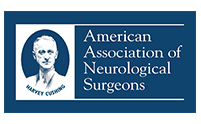What is Trigeminal Neuralgia?
Trigeminal neuralgia is a sharp, shooting, severe pain felt along the path of an irritated or damaged trigeminal nerve, the nerve which carries sensation from your face to your brain.
Trigeminal neuralgia occurs when blood vessels press against the trigeminal nerve which passes through the face. Other causes include multiple sclerosis, a condition which damages the myelin sheath, the protective coating around nerves. It usually affects one side of the face and is most commonly seen in the elderly.
What are the Symptoms of Trigeminal Neuralgia?
Symptoms include sudden attacks of severe, sharp, shooting facial pain that may feel like an electric shock. Certain activities can trigger the pain which include:
- Brushing your teeth
- Shaving
- Putting on makeup
- Washing or touching your face
- Eating or drinking
- Talking
- A cool breeze on your face
- Vibrations, such as walking or travelling in a car
How is Trigeminal Neuralgia Diagnosed?
When you experience symptoms of trigeminal neuralgia, your doctor will review your history, examine you and order blood tests to check for infection. Your doctor may order imaging test such as MRI of your head to determine if a tumor or multiple sclerosis is causing trigeminal neuralgia.
What are the Treatment Options for Trigeminal Neuralgia?
The treatment of trigeminal neuralgia focuses on treating the underlying cause. Your doctor may prescribe analgesics, antidepressants, and anticonvulsant medications for pain. Over time the effect of the medications might decrease and surgery might be considered as an option to treat trigeminal neuralgia. The goal of surgery is to relieve the pressure of impeding structures such as blood vessels, tumors, and ligaments of the nerves.








